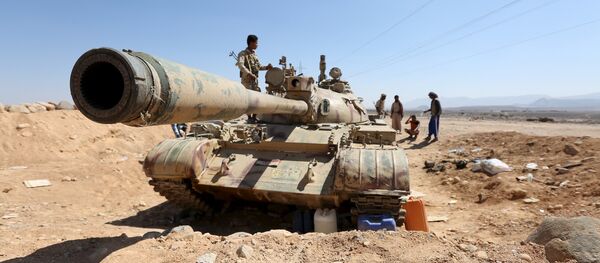Ahead of UN-sponsored peace talks aimed at ending the conflict, Cameron is facing protests from aid agencies and members of his own party over the UK's decision to back Saudi Arabia's role in the conflict, which has killed close to 6,000 people since March.
NEW briefing paper calls for #Yemen peace talks not to make the same mistakes of the past https://t.co/wQdytIqdXh pic.twitter.com/6jeSMANlVc
— Policy & Practice (@oxfamgbpolicy) December 14, 2015
Conservative MP Andrew Mitchell was among those critical of Britain's approach to Yemen, saying:
"Britain's humanitarian and foreign policy are pursuing different ends."
The former Secretary of State for International Development told The Telegraph that Britain's actions in regards to Yemen are highly contradictory.
"The Yemenis are being pulverized by the Saudis while we try to get aid in through ports which are being blockaded and while British ordnance is being dropped there."
Arms Hindering Aid
Britain has spent more than US$600 million (£400m) on aid projects in Yemen over the past decade.
However, many critics have pointed out that Britain's sale of arms to Saudi Arabia is directly hindering these humanitarian efforts, after bases run by UK-funded charities were destroyed in airstrikes.
The comments come amid increased criticism of the UK's decision to sell arms to Saudi Arabia, which has been accused of carrying out war crimes in its nine month long bombing of Houthi rebel targets in Yemen.
In September, aid agency Oxfam accused Britain of quietly fueling the war in Yemen through the ongoing sale of arms to Riyadh, and was inadvertently "exacerbating one of the world's worst humanitarian crises."
There were further calls for the UK to halt arms sale to Britain following the release of a report from NGO Human Rights Watch (HRW), which concluded that a British-made cruise missile was used in an attack on a civilian ceramics factory that killed at least one person and injured several more.
The reports have led to suggestions that Britain may be complicit in any potential war crimes carried out by Saudi forces in Yemen.
Yemen crisis: Saudi-led coalition have been targeting schools injuring children. Act now https://t.co/kEM6pcaMIK pic.twitter.com/dxROxHvbJu
— Amnesty UK (@AmnestyUK) December 12, 2015
In October, the World Health Organization estimated that of the more than 5,500 people killed in fighting in Yemen this year, more than half of those are civilians.
Meanwhile, a UN report in September found that two-thirds of civilian deaths "had allegedly been caused by coalition airstrikes, which were also responsible for almost two-thirds of damaged or destroyed civilian public buildings."
Saudi Arabia has been taking part in airstrikes against Houthi rebel targets in Yemen since March, in reaction to the rebels forcefully taking control of the country, and forcing the internationally-recognized President Abd Rabbuh Mansur Hadi to flee.



